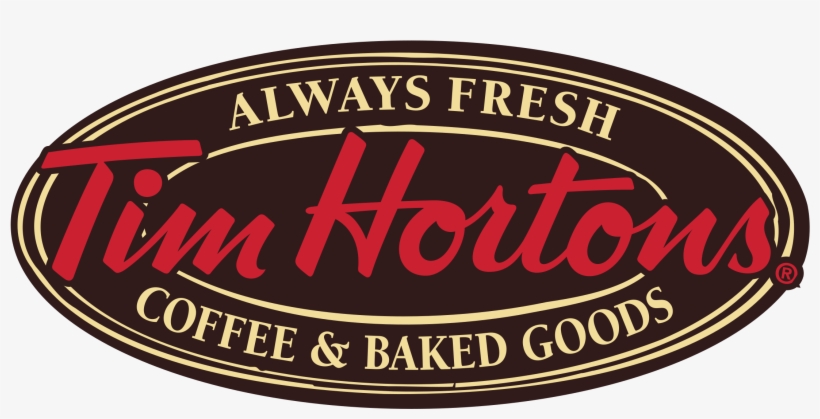Miles Gilbert “Tim” Horton was better known as the star defenceman of the Toronto Maple Leafs when he opened his first doughnut shop in 1964. With its co-owner and namesake being a player of Canada’s favourite sport, for a team named after Canada’s national symbol, Tim Hortons was well situated to manufacture the image of being an essential component of Canadian identity that it has.
Today, Tim Hortons are everywhere (there are about 4,000 locations country-wide), and the idea the restaurant is important to Canadian life is more or less taken for granted. More than zero cable news segments and one MacLean’s article were devoted to the company’s introduction of to-go lids with a maple leaf design imprinted on them in 2018. Politicians are quick to share anecdotes of stopping for a double-double on the campaign trail to signify they are of the people.
The company’s marketing has all but abandoned any pretense of trying to sell a product in favour of referencing this idea. The latest commercial is a dramatized Wayne Gretzky origin story. The one before that is just a montage of small towns that have a franchise or two, ending with the tagline: “If there’s a Canadian, there has to be a Tims.”
It’s more like one of those word-association games my therapist likes to play than any sort of actual advertisement for a fast- food service. What does hockey or Cap-Pelé, N.B. have to do with coffee and doughnuts? Not much, but it doesn’t matter. You know that all of these things are Canadian, and that’s all you need to know.
There’s a good reason Tim Hortons no longer talks about what it actually makes and does. In spite of its public image, some- time between now and 1974 — when Horton died of an alcohol and amphetamine-induced car crash and the company started ramping up its aggressive territorial expansion — internally, it has undergone whatever the business and culinary equivalent of an alcohol and amphetamine-induced car crash is.
I don’t have much to say about their coffee, personally treating the stuff more as a drug than a beverage, but the general consensus seems to be it’s either disgusting or merely satisfying in the way that all junk food is: chemically engineered to be so. The flagship products of the company — the doughnuts — are awful, probably in part because since 2001 all of their baked goods have been par-baked at a central location in Ontario, to be frozen and shipped across the country.
But, everyone knows about the food already. Sure, the sandwiches are bad even by fast-food standards — the grilled cheese especially tastes like a dishcloth that was used to clean up some Cheez Whiz a couple of days ago — but the overall quality is not that far below the modern standard of any international chain at its price point.
It’s equally unsurprising that the corporate side of the $15-bil- lion operation had a collective meltdown when Ontario raised its minimum wage to $14 a couple of years ago. The company lobbied extensively against the law, and after it passed, some franchisees began taking away paid breaks and benefits, citing an inability to meet the added costs. This was in a year where the company was exceedingly profitable, according to the Financial Post, revealing said franchisees to either be liars or the world’s worst businesspeople — not even able to capitalize on one of the country’s most recognizable brands well enough to pay their employees properly.
The expectedly bad food and worse business practices aside, the real kicker of the company’s image is that even its own premise is false — Tim Hortons is not Canadian. In 1992, it was acquired by the American owners of Wendy’s. Though it briefly regained its independence in 2009, it merged with Burger King a few years later, forming a parent company with the cartoonishly corporate name, “Restaurant Brands International” — itself majority-owned by a Brazilian private equity firm whose holdings mostly include other American companies like Heinz. Even the facility that makes and freezes its doughnuts is owned by a Swedish food-processing conglomerate.
Tim Hortons is a big international company, basically, owned by a bigger, more international conglomerate, and the reasons for it being on every second corner are the same as any other business like it: the massive advertising budget and the expansion strategy of throwing a location down wherever it can fit, putting any number of small coffee shops out of business in the process.
Though to be fair, scooping up as much real estate as possible and kicking out everyone else that was there before is a Canadian tradition.
Besides that, the only connection Tim Hortons has to Canada is the one the company keeps insisting it has, like a partner that keeps saying they’ve never cheated on you without you ever bringing up the subject. All it can offer is a tasteless, lukewarm appeal to the nationalism of a country that doesn’t quite have the F35-fighter-jets-flying-over-the-NFL-halftime-show audacity of its neighbour, and the homogenized, half-baked goods of global capitalism.
Their cream cheese doughnuts are pretty good.





0 Comments